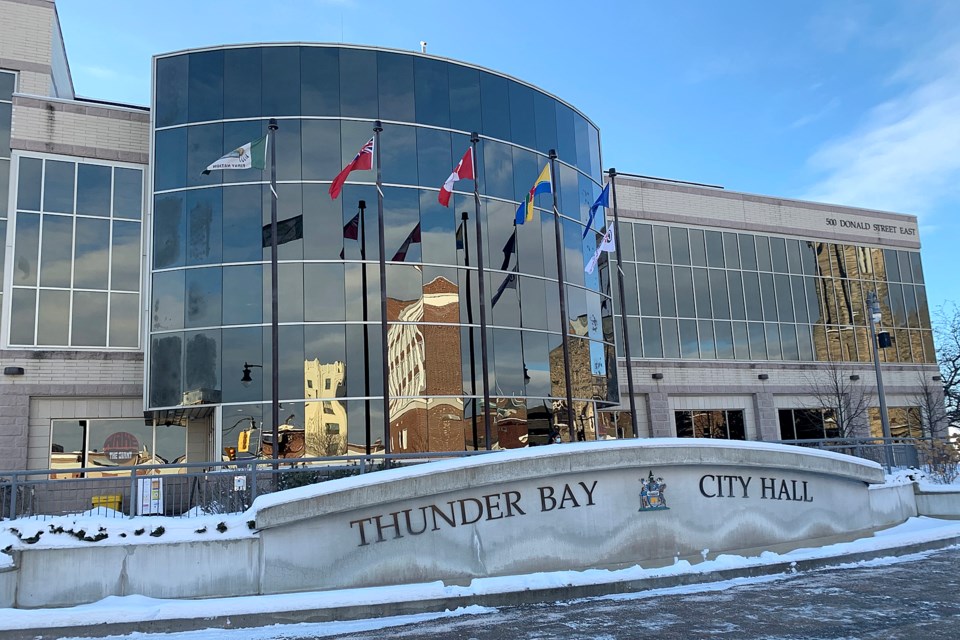THUNDER BAY – The City of Thunder Bay’s proposed 2022 budget includes a 2.29 per cent tax levy hike and major increases to capital spending.
City councillors will review the document over a series of meetings in the coming weeks, approving a final version of the spending plan on Feb. 7.
A full schedule of budget meetings, including two in which members of the public can make deputations to council, is available at the city’s website, while residents can also submit feedback via an online survey.
The proposed 2022 municipal tax levy of $208 million represents a $5 million increase over last year.
With only $300,000 projected in new assessment growth, the increase after growth is $4.7 million, or 2.29 per cent (the increase is 2.44 per cent before growth). The levy hike affects municipal taxpayers differently depending on property assessments and other factors.
That increase is higher than the level council directed administration to meet - 2.25 per cent. City manager Norm Gale said the discrepancy was due to a request for security measures from the Thunder Bay Police Service that came late in the year, after the draft budget had largely been prepared.
Council passed the 2021 budget last year with a 1.6 per cent levy hike, after growth - the lowest increase in a decade - whittled down from a 2 per cent increase in the proposed budget.
This year's proposed budget prepared by city staff includes a 2.3 per cent net increase in the tax-supported budget, reaching roughly $280.5 million in net city spending.
Major non-COVID-related drivers of spending increases include increased police spending of around $1.8 million million, between the Thunder Bay Police Service and the police services board, a $1 million addition to tax-supported capital spending, and another $1 million in expansions at Superior North EMS, licensing and enforcement, and the Pool 6 docking facility.
Reductions include a projected $1.3 million decline in tax write-offs, insurance claims, and legal fees, an $800,000 boost to the city’s Ontario Municipal Partnership Fund allocation, and $600,000 in projected savings from reduced staffing costs at Thunder Bay Fire Rescue in accordance with its new master plan.
The gross tax-supported budget – the total amount the city spends on its operations – is set to increase by a whopping 22.7 per cent, largely thanks to a more than doubling of the gross capital budget to just over $121 million, much of it financed by debentures.
That will support major capital projects including a new police headquarters estimated at $58.2 million, road work totalling $19.1 million, parks improvements of $8.7 million, fleet and equipment replacement of $8 million, and more.
COVID-19 impacts
The city projects a total $7 million impact from COVID-19 this year, to be funded from the stabilization reserve rather than tax revenue. The reserve currently sits around $12 million.
Major drivers of pandemic costs include reduced revenues for transit, recreation, parking, landfill, and increased costs and reduced revenue for the city's childcare operations.
Water and wastewater services
The proposed budget includes a three per cent hike to water rates and the wastewater surcharge.
For water services, the city estimates that represents an annual increase of just over $20 for the average household using 200 cubic meters of water in a year, with daily costs averaging $1.89.
For wastewater, the city says the hike will translate to an annual increase of $18.12 for the average household, with daily costs averaging $1.71.
Total water and wastewater costs for the average household will then amount to $1,315.
